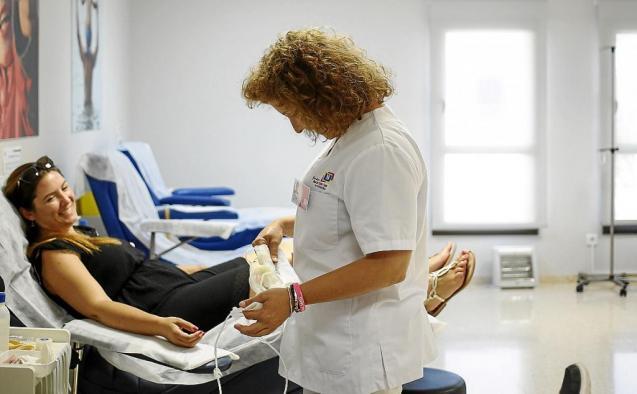Christmas and the thousands of infections caused by the omicron variant of covid have reduced blood reserves to alarming levels in many communities, which have launched urgent appeals to the population to donate and prevent the health system from being paralysed by having to suspend interventions, emergencies or transplants.
Andalusia, the Balearic Islands, the Canary Islands, Madrid and La Rioja are some of the communities that have launched extraordinary campaigns for blood donation, which usually drops at Christmas, and which this year has also been affected by the exponential increase in covid-19 infections, with the arrival of the most contagious variant, which has a direct influence on blood donors.
Luisa Barea, managing director of the Transfusion Centre of the Community of Madrid, stressed that the drop in donations does not correspond to the transfusions needed in the surgeries that continue to be performed.
Although she recognizes that the pandemic "has left us all very tired", she called for "an effort to be made". Barea called for "a huge effort because we have no other choice, since blood is a resource that cannot be obtained in any other way".
"That is why we are calling for donations. Without blood, healthcare would be paralysed. Interventions, emergency care or transplants could not be carried out," so she urges to put "the focus on the patient who needs it and who cannot be left stranded."
In the Balearic Islands, the Blood and Tissue Bank of the Balearic Islands has warned that the shortage of blood "seriously compromises the health care of patients". The Islands currently obtain only half of the 200 donations they need and warn that the number of new donors has been reduced by 5,000 since the beginning of the pandemic.
It is not necessary to perform a covid test before donating, since, as Luisa Barea explains, SARS-COv-2 is not transmitted by transfusion.
"They are only performed to donate coronavirus convalescent plasma, a special type of donation to transfuse patients who have covid, but for normal blood donation there is no need to perform any specific test," says Barea, and stresses that there are some selection criteria for donors, since all donations are governed by the principle of maximum precaution.
If a donor has been ill with covid, it is necessary for them to recover and wait 14 days after the resolution of the symptoms to donate again, after undergoing a test to confirm the negative result.
These are requirements that Dr. Barea does not rule out being modified "just as the periods for returning to work have already been shortened".
At present, the requirements to be able to donate blood are: to be between 18 and 65 years of age and weigh 50 kilograms or more, not to suffer from chronic diseases or have an acute infection, not to be anemic and not to engage in risky practices that facilitate the spread of diseases, such as hepatitis, syphilis or AIDS. It is mandatory to come with the ID card or document that accredits them and it is advisable not to come on an empty stomach.
Unfortunately people that lived in the UK during the period of mad cows disease (Creutzfeldt-Jakob Disease) 1980-1996 are unable to be blood donors in the Balearics.
For further information on blood donation click here.


No comments
To be able to write a comment, you have to be registered and logged in
Currently there are no comments.